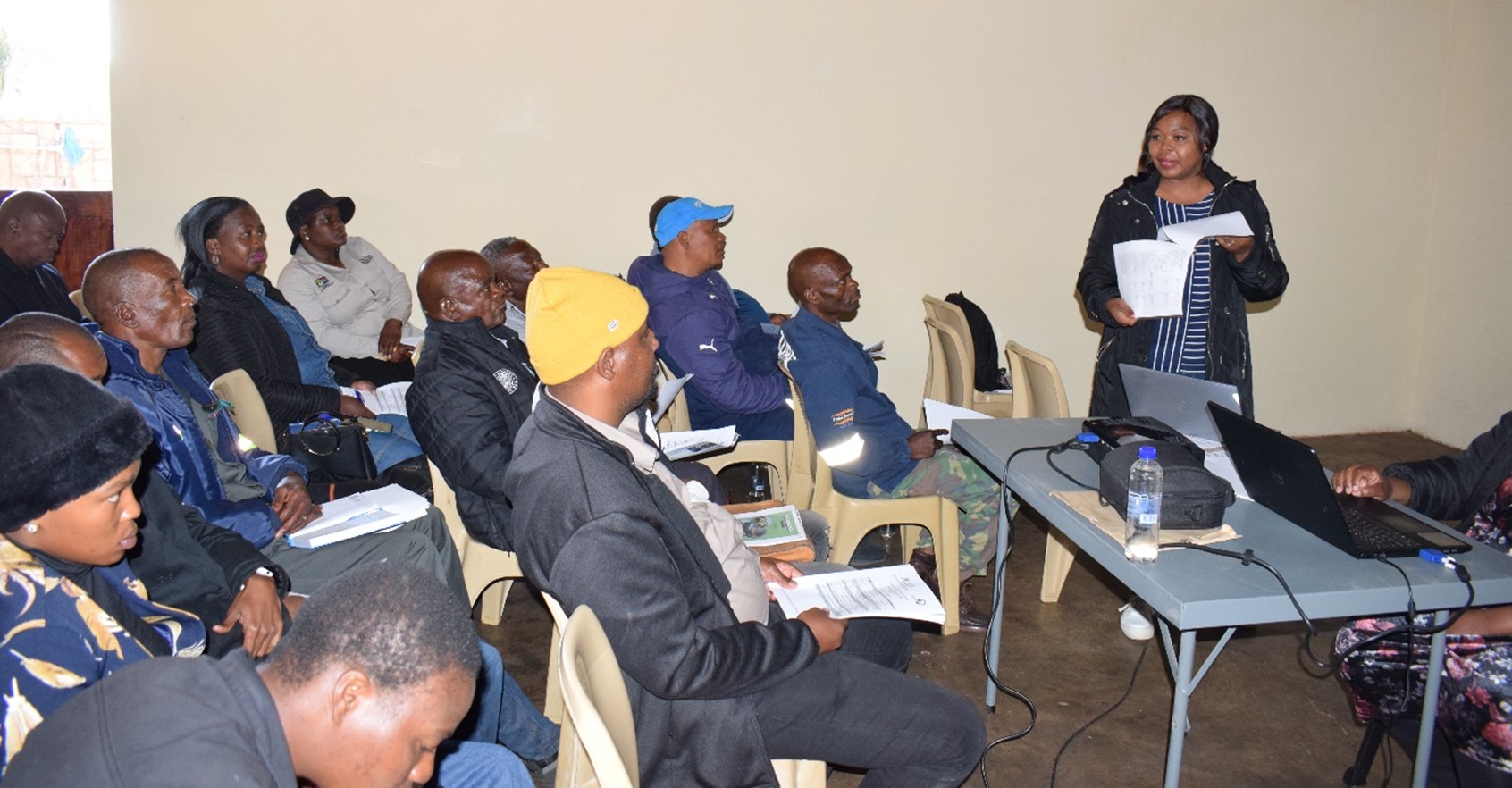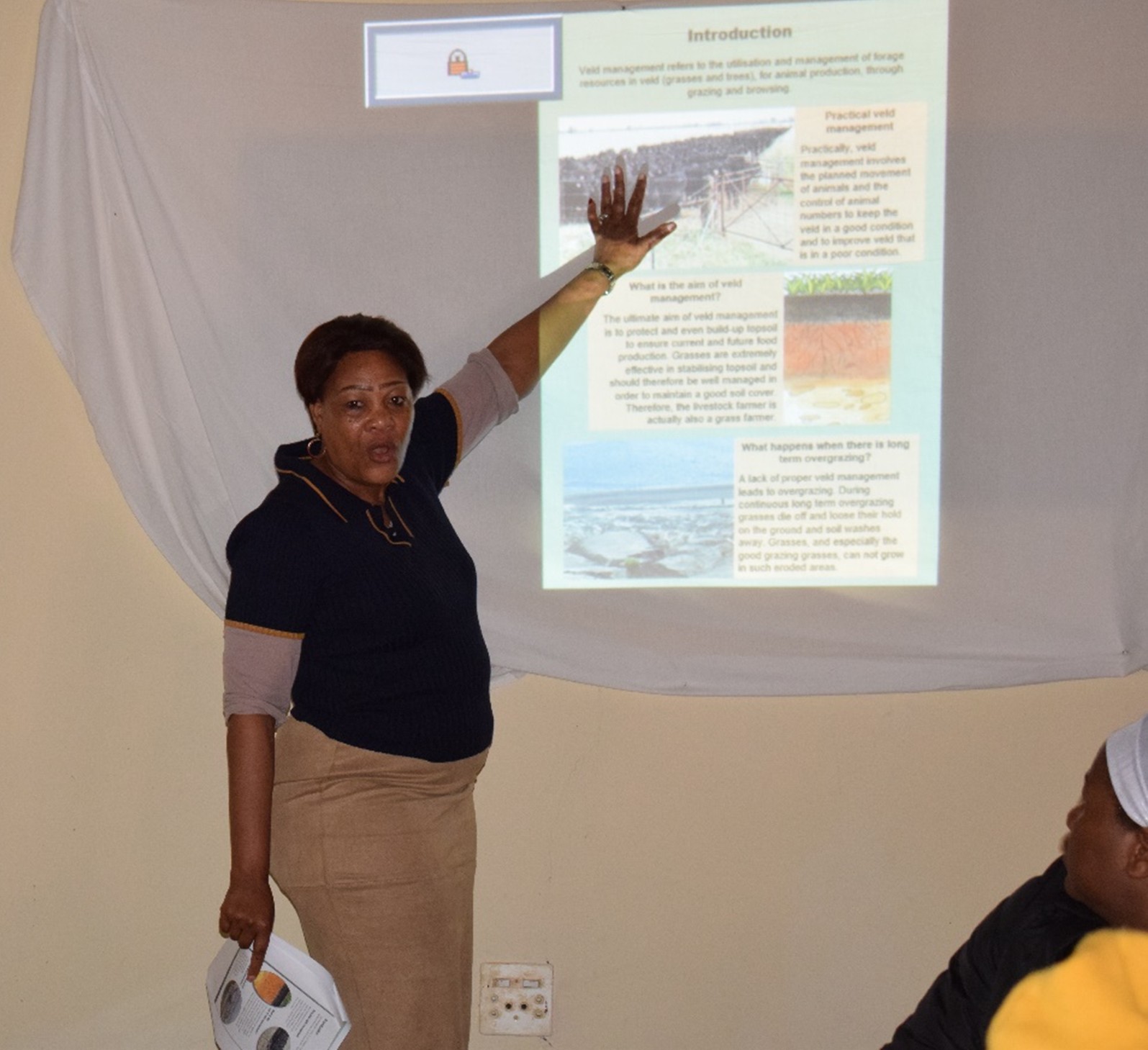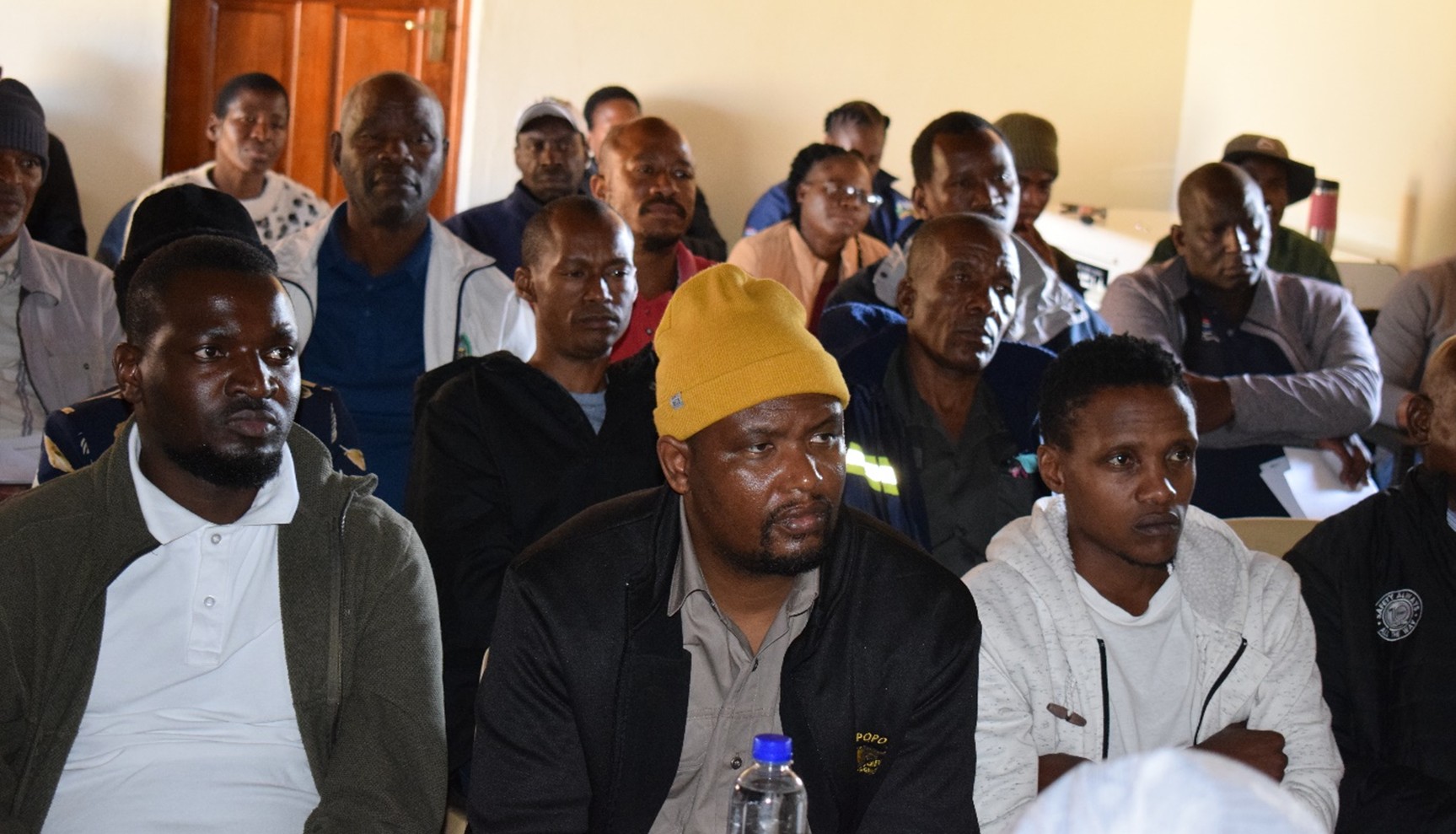By Matsobane Manaka

Esmy Madumo from Department of Water and Sanitation advises on the importance of applying for water rights if the water use is for commercial purpose.
It all starts with good veld management practices to recover millions of lost hectares (ha) of natural grazing due to poor land management practices. The statement received the support from livestock farmers during veld management awareness day held at Merinowalk Boerdery, Dwaalboom, Thabazimbi.
Poor veld management practices often result with bush encroachment, continuation of overgrazing without any form of management leading to soil erosion and lesser grassland or grass cover which compounded by more population of plant invaders.
An increasing call for livestock farmers to put more efforts in protecting veld received traction.
Merriam Tshenolo Mantji emphasising the importance of protecting and building up top soil to ensure sustainability of the current and future food production as part of veld management.
She stressed out the importance of understanding the stock rate with the size of the hectare to refrain from overgrazing. She continued that the continous long-term overgrazing results with grass dying and rain water eroding of good grazing grasses.
“Good grasses do not have time to recover after being grazed. Eventually, their reserve nutrients get used up, and they die,” said Mantji.

She advised farmers that veld detorioration through overgrazing can be prevented by keeping to the correct stocking rate and applying rotational grazing. Rotational grazing involves: camp divisions, a minimum of three camps is advised per group of animals, farm be rested for a whole season (November to March) and no overstocking.
Mantji also indicated that the control and reduction of bush encroachment must be conducted in a responsible manner and in line with Conservation of Agricultural Resources Act (CARA) Act No. 43 of 1983.
Livestock farmers were further advised to make fire belts as the dry season has arrived since various parts of the province have already experienced an increase in veld fires. On water rights, Esmy Madumo from Department of Water and Sanitation advised on the importance of applying for water rights if the water use is for commercial purpose.
The awareness further covered the impact of climate change on agriculture under disaster management, presented by Selekane Phahladira, assistant director for disaster risk management. He gave guide to farmers to always look out for seasonal forecast that will allow them to plan accordingly, before any attempt to get into agricultural operation.

Livestock farmers were advised to make fire belts as the dry season has arrived.


